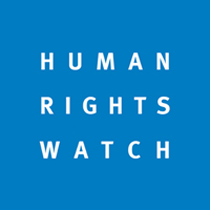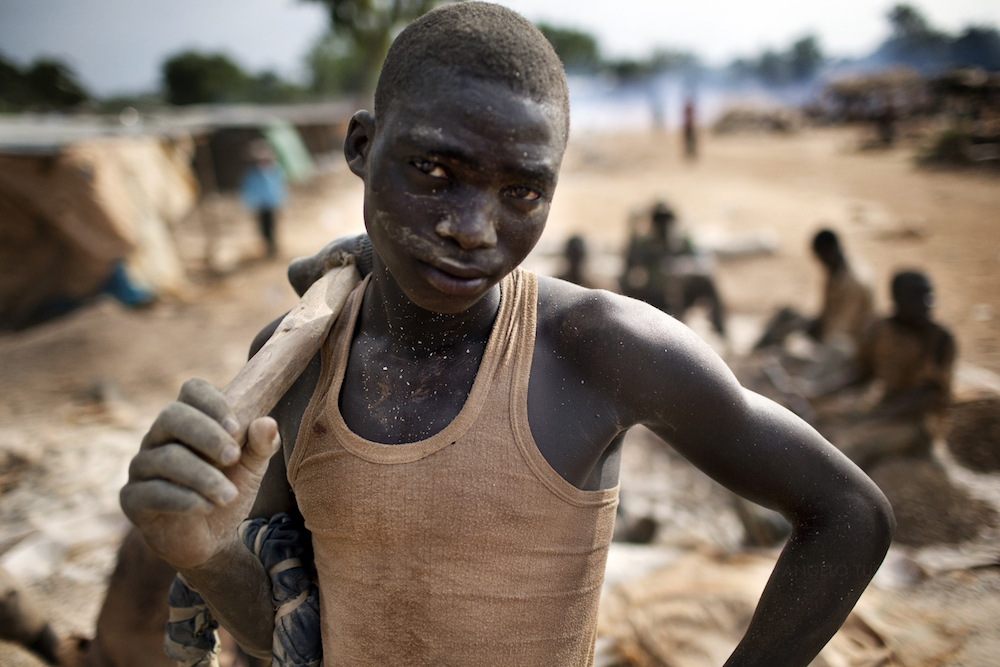
13 Mar, 2018
UN General Assembly Adopts Resolution to Combat Illicit Diamond Trade
United Nations, March 7, 2018, UN media release — The UN General Assembly, welcoming progress made by the Kimberley Process Certification Scheme to break links between the diamond trade and conflict, today adopted a consensus resolution aimed at intensifying that work and aligning it with the 2030 Agenda for Sustainable Development.
Julie Bishop, Minister for Foreign Affairs of Australia, introduced the draft resolution titled, “The role of diamonds in fuelling conflict: breaking the link between the illicit transaction of rough diamonds and armed conflict as a contribution to prevention and settlement of conflicts” (document A/72/L.41). Noting that Australia was the outgoing Chair of the Kimberley Process — established by the United Nations in 2003 to prevent conflict diamonds from entering the mainstream market — she said that scheme had made a valuable contribution to international security, development and human rights.
“Fifteen years ago […] the global diamond trade looked very different than that of today,” she said. At that time, diamonds were mined in conflict zones, while at the other end of the supply chain, customers had little or no way to know where the diamonds had originated. The Kimberley Process cut the flow of diamonds to insurgencies and rebel groups, who would sacrifice peace and development for their own power. By safeguarding the legitimate diamond trade, it improved the livelihoods of those relying on it to feed and educate their families.
Noting that young people today were three times more likely than older generations to avoid diamonds unless they had been responsibly sourced, she nevertheless emphasized that more work remained to be done. The international community should examine new ways to align the diamond trade with the 2030 Agenda and sustaining peace, and should seek a diamond market free from human rights abuses and forced labour.
The resolution was a critical link between the Kimberley Process’ excellent work and its potential to contribute to the broader United Nations agenda by requesting the establishment of a dedicated secretariat and a multi‑donor trust fund to support broad‑based participation.
Antonio Parenti, speaking on behalf of the European Union, noted that the bloc — which had been at the forefront of the Kimberley Process from since its inception — had been selected to Chair the certification scheme for 2018.
Welcoming the decision to set up an Ad Hoc Committee on Review and Reform, which would enhance administrative and financial support to the Process, he pledged to use the 2018 Chairmanship to promote open dialogue among the three pillars of the Kimberley Process: Governments, industry and civil society. Overall, the European Union would aim to strengthen the mechanism’s effectiveness in peacebuilding, conflict prevention and the promotion of in‑country due diligence.
Noa Furman (Israel) declared: “Conflict‑free diamonds bring the world a step closer to ending poverty, protecting the planet and ensuring prosperity.” The Kimberley Process intertwined with the 2030 Agenda, as the diamond industry provided almost 40,000 jobs in sub‑Saharan Africa alone. Revenues had broadened access to education and health care.
What had appeared as an unprecedented goal in 2003 had today become a reality, with 99.8 per cent of the world’s diamonds being considered conflict‑free. However, that 0.2 per cent must be addressed, she said, emphasizing that Israel had been the first to harness technology for use in the Kimberley Process by computerizing diamond imports, which were examined at customs, and leaving zero margin for error.
Charles T. Ntwaagae (Botswana) said his country had benefited from diamond‑related socioeconomic gains over the past century, having graduated from being one of the world’s poorest countries to a middle‑income nation. Indeed, diamond sales had fostered the implementation of national development plans alongside the 2030 Agenda and the African Union Agenda 2063.
The proper management of diamonds was crucial to achieving peace. Noting that Botswana was a founding member of the certification scheme, he cited a 2017 report detailing significant strides in regulating and monitoring the diamond trade. However, there was an urgent need to reform and strengthen the Kimberley Process to address the emerging challenges of synthetic diamonds and Government capacity constraints in establishing regulation.
Message from Human Rights Watch: Child labor might be behind your jewelry…
Dear Supporter,
Just before Valentine’s Day, we launched our #BehindTheBling campaign, calling on jewelry companies to tackle human rights in their supply chains and ensure their jewelry is responsibly sourced. Sadly, all too often, gold and diamonds are mined under brutal, abusive conditions, involving child and forced labor.
We are happy to let you know that over 6,400 people have emailed and countless tweets have been sent to the jewelry companies we targeted. And our pressure is starting to show results:
- The UK jeweler Boodles has pledged to revise its supplier code of conduct and to make it public; to report publicly on its human rights due diligence from 2019; and to conduct more rigorous human rights assessments.
- The German jeweler Christ has pledged to publish its supplier code of conduct and other information on its human rights due diligence efforts during 2018.
- Two other companies have started to change their practices too, but prefer not to be named.
- The Responsible Jewelry Council, an industry group with over 1,000 members, has agreed to train its auditors on human rights issues and invited us to provide input into the new version of its certification standard, the Code of Practices.
Please help us keep the pressure up! With the international jewelry trade show, BaselWorld, approaching it is time to take action and ask jewelry companies what is #BehindTheBling.
Thanks for your support!
Juliane Kippenberg
Associate Director
Children’s Rights Division
Human Rights Watch
@KippenbergJ





Liked this article? Share it!